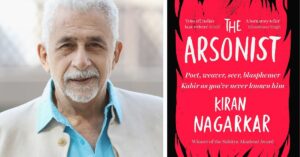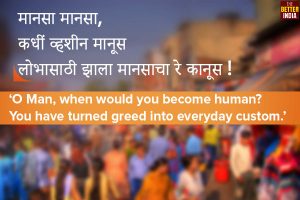Bahinabai: This Farmer-Poet Was Illiterate, yet She Has Life Lessons for Us All to Live By!
Her writing is away from all literary influences, as she never had a chance to read any.
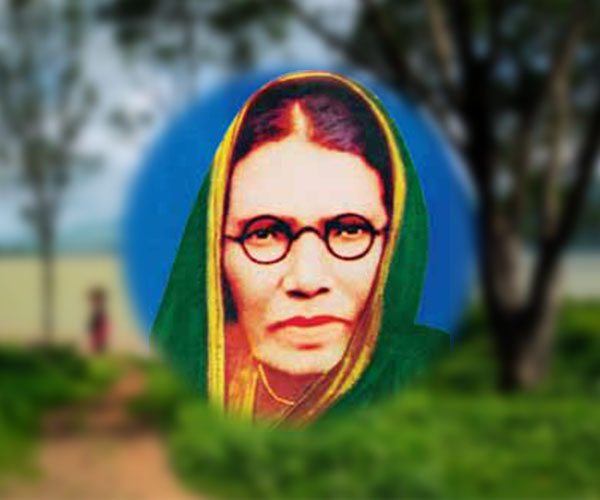
“Arey Sansaar Sansaar, Jasa Tava Chulyavar
Adhi Hatala Chatake, Tevha Milte Bhaakar”
(Oh this life, just like a pan on the hearth
First it burns the hand, only then one gets the bread)
– Bahinabai Choudhari
Her life and struggles were the same too. But she had that extra vision to see happiness and love in every part of this routine life and form verbal couplets (ovi) out of it.
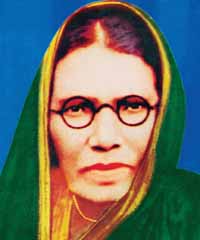
Image Source
However, Bahinabai’s poems are full of gratitude towards everything she had.
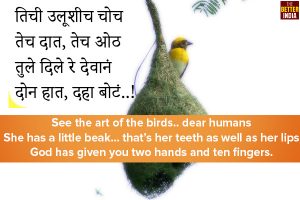
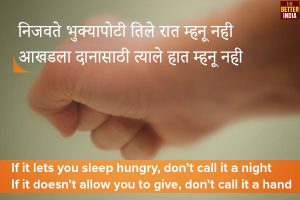
Her son, Sopandev – who also became a notable poet of Marathi literature – first published her poems in 1952 under the title ‘Bahinabainchi gani [Bahinabai’s Songs] after her death.
It took almost 13 years to revise and add further poems to her collection.
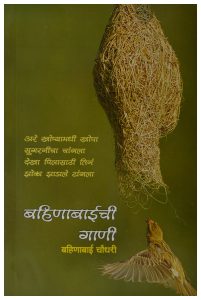 Image Source
Image Source
Sopan writes in his book:
“I was in class 4, when once while browsing through my old books, I chanced upon a class 2 textbook. I was looking for the ink marks I used to leave, and I stumbled upon my favourite story. It was titled ‘ Savitri’s Sagacity’.I started reading aloud with aplomb. Mother was listening intently, and I was wondering what my illiterate Mother would understand out of this. Next morning mother was up early to do her chores. Her sweet rendering of couplets as she ground grains woke me up. I rested in her lap as she sang…
“Savitri Savitri ..Satyavanachi sawli(Savitri – is with Satyawan like a shadow)Ninghe Satyawan, tyacha maage dhawli(Even after his death, she ran to follow him)Unfortunately, I just remember these two lines now. The full text never got documented!”
After his mother’s death in 1951, Sopandev found the notebook and shared one of her poems with Acharya Pralhad Keshav Atre.
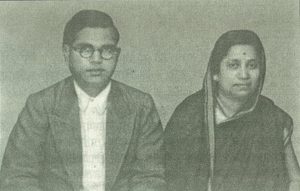
Image Source
At the same time, she depicted the philosophy of human life in simple words.
“माझी माय सरसोतीमाले शिकवते बोलीलेक बहिनाच्या, मनीकिती गुपीतं पेरली.”(My mother Saraswati (Goddess of Learning) taught me to speakShe hid many “secrets” in my mind)
Her poetry expresses the emotional world of a woman who is born in a poor, hard-working family of farmers and looks at the day-to-day routine life with an observant eye.
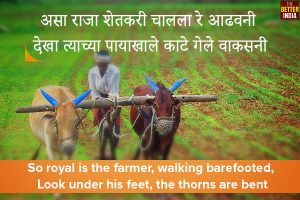
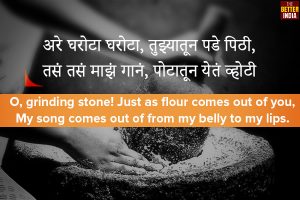
Bahinabai answered – “Sopan, my dear…I can see heaven in the mirror of this earth…”
‘आला सास, गेला सास, जीवा तुझं रे तंतर,अरे जगनं-मरनं एका सासाचं अंतर!’(Breathing begins- Breathing ends, that’s what life meansWhat separates life and death is but merely a breath)– Bahinabai Choudhari
Like this story? Or have something to share? Write to us: [email protected], or connect with us on Facebook and Twitter.
NEW: Click here to get positive news on WhatsApp!
This story made me
-
97
-
121
-
89
-
167
Tell Us More
If you found our story insightful, informative, or even just enjoyable, we invite you to consider making a voluntary payment to support the work we do at The Better India. Your contribution helps us continue producing quality content that educates, inspires, and drives positive change.
Choose one of the payment options below for your contribution-
By paying for the stories you value, you directly contribute to sustaining our efforts focused on making a difference in the world. Together, let's ensure that impactful stories continue to be told and shared, enriching lives and communities alike.
Thank you for your support. Here are some frequently asked questions you might find helpful to know why you are contributing?






